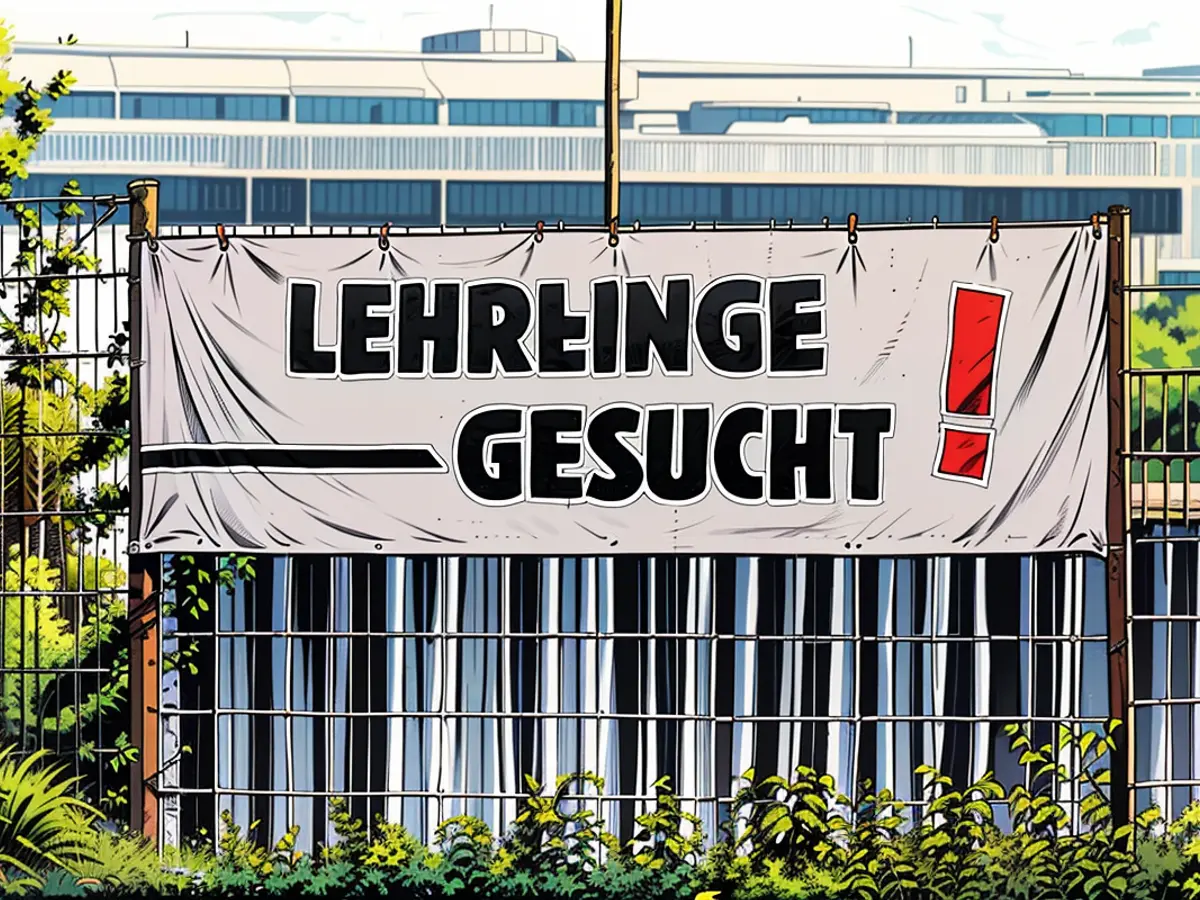IW: Foreigners keep the East German economy running
In Eastern Germany, the Institute of the German Economy (IW) reports that thousands of companies are struggling with a shortage of skilled workers. More and more open positions are being filled by immigrants. "Foreigners aren't stealing jobs, they're contributing to employment growth," says an IW expert.
In the eastern German states, excluding Berlin, the number of German employees decreased between 2022 and 2023. Foreign employees partially offset this decline, as explained by the business-oriented Institute of the German Economy (IW) in a study. Especially Saxony and Brandenburg are already benefiting from immigration.
In Saxony-Anhalt, Saxony, Thuringia, Mecklenburg-Vorpommern, and Brandenburg, thousands of companies are struggling with a shortage of skilled workers. For instance, the number of German employees in Saxony dropped by around 7,500 between 2022 and 2023, according to economists. However, international workers not only made up for this decline but also contributed to employment growth, with a total increase of 14,800 employees. Around 8,700 of these were non-EU workers.
"Important Contribution to Prosperity"
"Foreigners aren't taking jobs away from Germans, as some people believe, but are significantly contributing to employment growth," explains IW expert Fabian Semsarha. "This way, they're making an important contribution to securing our prosperity."
The study is based on a special evaluation of the Federal Employment Agency's data. IW researchers calculated how the number of socially insured employees changed by federal state and nationality, on average, between July 2021 and June 2022, and July 2022 and June 2023. They distinguished between Germans, EU immigrants, and skilled workers from Switzerland and other third countries.
Indicator of Economic Situation
Nationwide, there were 570,000 open positions for qualified skilled workers last year, according to an earlier IW study. The situation is expected to worsen in the coming years as the baby boomers retire and the younger generations cannot fill the gap they leave behind. Germany needs skilled workers from abroad, explains IW - particularly from non-EU countries, as other European states face similar challenges.
According to the current study, workers from third countries accounted for 62% of employment growth in Germany between 2022 and 2023, while Germans accounted for only 14%. Employment growth is an important indicator of the economic situation, says IW. If the number of employees increases, it shows that companies have a higher demand for workers and more people find suitable jobs. This leads to more spending and investments, which boosts the economy.
The Institute of German Economics Cologne (IW) conducted a study showing that foreign employees partially offset the decrease in German employees in some eastern German states between 2022 and 2023. In Saxony-Anhalt, Saxony, Thuringia, Mecklenburg-Vorpommern, and Brandenburg, international workers not only made up for the decline but also contributed to employment growth.
Furthermore, IW expert Fabian Semsarha stated in the study that foreign workers are not taking jobs away from Germans but are significantly contributing to employment growth, thereby making an important contribution to securing prosperity.








